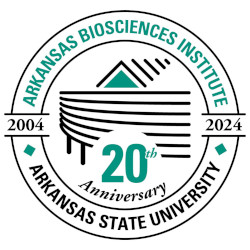Plants as Biofactories for Therapeutic Proteins and Antiviral Compounds to Combat COVID-19
Document Type
Article
Publication Title
Life (Basel, Switzerland)
PubMed ID
36983772
Abstract
The outbreak of coronavirus disease 2019 (COVID-19) caused by severe acute respiratory syndrome coronavirus 2 (SARS-CoV-2) had a profound impact on the world's health and economy. Although the end of the pandemic may come in 2023, it is generally believed that the virus will not be completely eradicated. Most likely, the disease will become an endemicity. The rapid development of vaccines of different types (mRNA, subunit protein, inactivated virus, etc.) and some other antiviral drugs (Remdesivir, Olumiant, Paxlovid, etc.) has provided effectiveness in reducing COVID-19's impact worldwide. However, the circulating SARS-CoV-2 virus has been constantly mutating with the emergence of multiple variants, which makes control of COVID-19 difficult. There is still a pressing need for developing more effective antiviral drugs to fight against the disease. Plants have provided a promising production platform for both bioactive chemical compounds (small molecules) and recombinant therapeutics (big molecules). Plants naturally produce a diverse range of bioactive compounds as secondary metabolites, such as alkaloids, terpenoids/terpenes and polyphenols, which are a rich source of countless antiviral compounds. Plants can also be genetically engineered to produce valuable recombinant therapeutics. This molecular farming in plants has an unprecedented opportunity for developing vaccines, antibodies, and other biologics for pandemic diseases because of its potential advantages, such as low cost, safety, and high production volume. This review summarizes the latest advancements in plant-derived drugs used to combat COVID-19 and discusses the prospects and challenges of the plant-based production platform for antiviral agents.
DOI
10.3390/life13030617
Publication Date
2-23-2023
Recommended Citation
England, Corbin; TrejoMartinez, Jonathan; PerezSanchez, Paula; Karki, Uddhab; and Xu, Jianfeng, "Plants as Biofactories for Therapeutic Proteins and Antiviral Compounds to Combat COVID-19" (2023). Arkansas Biosciences Institute. 19.
https://arch.astate.edu/abi/19


